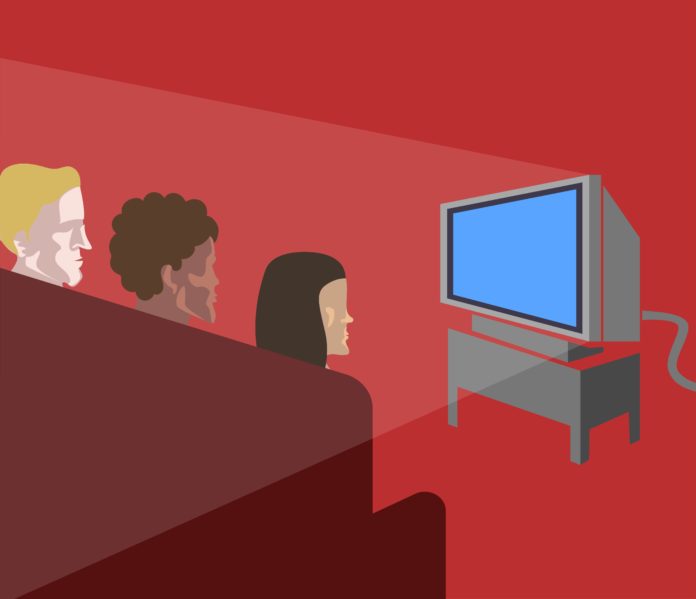In a society spent streaming, it has become increasingly popular to “binge” television shows, consuming episode after episode in a short period of time.
For some shows, such as “Friends” or “The Office,” this practice seems like the natural approach — mindless humor can often be a release after a long day, and it’s easy to get sucked into the sitcom shenanigans. However, for shows that deal with more somber or serious subjects, such as the newly released “You,” it is important to address the darker themes and issues before letting Netflix automatically play the next episode.
The show “You” follows a book store manager on his “romantic quest” to win the heart of the bubbly young poet Guinevere Beck. The story turns sour rather quickly, however, and the first season depicts grisly murders and intense domestic violence and questions where the line is between healthy and unhealthy relationships.
This show is just the most recent of more sobering series that have gained popularity across streaming platforms. The popular streaming service Netflix has tackled the serial killer mindset in the popular show “Making a Murderer,” covered another level of family drama in “The Haunting of Hill House” and even touched on prison reform, LGBTQ rights and relationships in the always highly anticipated “Orange is the New Black.”
With these series, as well as with shows on other streaming services, it is imperative to recognize and discuss what is going on in each episode. By changing the way we absorb our entertainment, we can shift our attitude toward a more healthy consumption.
How do we do this, though? Instead of watching these shows in the middle of the night on your laptop alone, turn binging into a group activity. Watch these darker, heavier shows with a trusted friend, sibling, parent or partner, and after every episode or two, start a dialogue with one another about what you liked about the episode, and what didn’t sit so well with you.
In the context of “You,” starting a conversation about domestic violence and healthy relationships makes these issues real, and something that may have seemed acceptable when it happens on a screen can appear in a different light when you sit down and discuss it with a friend.
Penn Badgley himself, the actor who plays Joe Goldberg in “You” has taken to social media to discourage audiences from lusting after his character on the show. Badgley’s responses to fans’ posts can also be seen beginning a dialogue on the show’s more disturbing moments, and his concern for his audience demonstrates his own recognition of the line between healthy and unhealthy relationships.
Even with lighter shows such as the aforementioned “Friends,” it can be beneficial to talk about some of the more serious undertones. Ross and Rachel, for example, have a tumultuous relationship full of lies and manipulation, and just because the show does not market itself as addressing darker themes does not mean that it cannot bring up hard-to-process feelings.
This is not to say that people should avoid watching these heavier series or that streaming services such as Netflix and Hulu should not tackle big-picture issues. On the contrary, it’s important for media conglomerates to provide commentary and insight into issues such as these, as long as their audiences are aware that there is a better way to consume and digest content than mindless binging.






